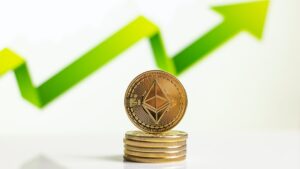Forex Trading Meaning in Today’s Global Economy: Trends, Challenges, and Opportunities
In today’s interconnected world, forex trading has become an integral part of the global economy. With trillions of dollars being exchanged every day, forex markets have emerged as the largest and most liquid financial markets worldwide. But what exactly is forex trading, and what are the trends, challenges, and opportunities it presents in today’s global economy?
Forex trading, also known as foreign exchange trading, is the process of buying and selling currencies with the aim of making a profit. Unlike traditional stock markets, forex markets operate 24 hours a day, five days a week, allowing traders from all over the world to participate. The primary objective of forex trading is to take advantage of fluctuations in exchange rates and profit from these movements.
One of the key trends in forex trading is the increasing participation of retail traders. In the past, forex trading was predominantly the domain of large financial institutions and professional traders. However, with advancements in technology and the rise of online trading platforms, retail traders now have easy access to the forex markets. This trend has democratized forex trading and allowed individuals to participate in the global economy on par with institutional players.
Another trend in forex trading is the emergence of algorithmic trading. With the advent of high-speed computers and complex algorithms, trading decisions can now be made instantaneously based on predefined rules and parameters. Algorithmic trading has significantly increased the speed, efficiency, and accuracy of forex trading, enabling traders to capitalize on even the smallest market movements. However, it also poses challenges in terms of market transparency and potential risks associated with algorithmic glitches.
One of the challenges faced by forex traders is the inherent volatility of the forex markets. Exchange rates can fluctuate rapidly in response to economic, political, and social factors, making it challenging to predict future movements accurately. Traders need to constantly monitor and analyze various indicators, such as economic data, geopolitical events, and market sentiment, to make informed trading decisions. The ability to adapt to changing market conditions and manage risks is crucial for success in forex trading.
Another challenge in forex trading is the presence of scams and fraudulent activities. The decentralized nature of the forex markets and the anonymity provided by online trading platforms have created opportunities for fraudsters to deceive unsuspecting traders. It is essential for traders to choose reputable brokers and educate themselves about common scams to protect their investments.
Despite the challenges, forex trading also presents significant opportunities in today’s global economy. The forex markets offer unparalleled liquidity, allowing traders to enter and exit positions quickly without affecting prices significantly. This liquidity offers ample opportunities for profit, especially for short-term traders who capitalize on intra-day price fluctuations.
Moreover, forex trading provides a gateway to international markets and diversification of investment portfolios. Traders can access a wide range of currency pairs, including major, minor, and exotic currencies, enabling them to take advantage of global economic trends and geopolitical developments. Forex trading also allows traders to hedge against currency risks, especially for businesses involved in international trade.
Additionally, the forex markets offer leverage, which allows traders to control larger positions with a smaller initial investment. While leverage enhances profit potential, it also increases the risk of significant losses. Traders must exercise caution and have a thorough understanding of leverage before using it in their trading strategies.
In conclusion, forex trading plays a vital role in today’s global economy. It offers a platform for individuals and institutions to participate in the largest and most liquid financial markets worldwide. While trends such as the increasing participation of retail traders and algorithmic trading have shaped the forex industry, challenges such as market volatility and scams persist. However, forex trading also presents numerous opportunities, including liquidity, international market access, and leverage. Traders need to stay informed, adapt to changing market conditions, and manage risks effectively to succeed in the dynamic world of forex trading.






